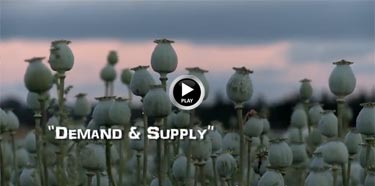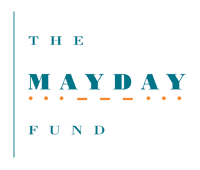The Treat the Pain & Life before Death Projects focus on the global epidemic of untreated pain and the need for palliative care. Read more / Watch All the Videos
Produced by Mike Hill & Sue Collins, Moonshine Movies
Treat the Pain Life Before Death
About this Video
'Demand & Supply' describes how a lack of commercial incentive for pharmaceutical manufacturers is leading to millions of people are dying with pain everyday around the world. read more...close
Global leaders describe the challenges to ensure adequate supplies of opioid medications. Eugene Murray (Ireland), Dr Henry Ddungu (Uganda), Jarrod Ritchie (Australia), Dr Meg O’Brien (USA) and Wasswa (Uganda) provide notable quotes:
“If you were to ask yourself at the end of your own life – if you were dying and you were in pain – how long you would be willing to wait for somebody to come and deal with your pain,” reflects hospice activist Eugene Murray (Ireland). “It would be minutes or hours, but for these people it’s very often never.”
In Kampala, Uganda, Dr Henry Ddungu introduces us to pediatric patient Wasswa who has advanced Non-Hodgkin’s lymphoma, a cancer of the lymphoid tissue, who had been experiencing severe pain. It wasn’t until Wasswa was treated with oral morphine that his pain subsided and he could get back to the important business of being a kid – running around, playing, sleeping, expressing affection to his mother. However his family are now concerned that Wasswa’s pain will return due to a country-wide shortage of morphine in Uganda and surrounding countries.
We discover that there is a great unmet need for morphine in Uganda. “Wasswa is one of the lucky few,” explains Dr Ddungu. “It’s kind of frustrating when you have a child in too much pain and you know what you can do, and you cannot. It’s like you’re tied. You cannot give them the medicine they need.”
Opium poppy manufacturer Jarrod Ritchie (Australia) stands before a mountain of opium poppy straw, strongly making the point that there is no shortage of raw materials in the world. “Supply is not an issue. Tasmania, at present, supplies over fifty per cent of the world’s licit morphine,” explains Mr Ritchie. “We’ve got plenty of land, plenty of irrigation capability here – we can clearly supply more, but it needs a coordinated approach through a significant body such as the UN.”
Treat The Pain spokesperson Dr Meg O’Brien (USA) elaborates; “Part of the issue is that the demand is really fragmented with different countries buying from different companies.”
“The large pharma companies are driven by blockbuster type drugs that they can patent,” continues Mr Ritchie. “That’s where they get their significant returns from. It really not as high a priority for a lot of the larger companies given that most of their revenues are driven out of the large markets – which is the US and the European markets.”
“Unfortunately, with morphine, it’s off-patent,” reflects Dr O’Brien. “So a lot of the production is happening in small companies who maybe have a smaller footprint in Africa than say a larger company would.”
“The stock out has been a real challenge for us,” states Dr Ddungu. “The delays in the delivery of purchased morphine powder has been a big, big challenge. If it wasn’t for that, all those children you hear crying now would be accessing that medicine.”
Call to Action
- Invite a pharmacist and/or drug regulator you know to watch this video
- Then ask them how they can minimize the risk of medication stock-outs in your community
- Share your experiences in the comments section below…
Supporting Resources
- Stop Stock-Outs Campaign
- Stop Stock-Outs, OSF & Parsons
- Human Rights Watch: Global State of Pain Treatment
- Special Report: Availability of Internationally Controlled Drugs: Ensuring Adequate Access for Medical and Scientific Purposes (PDF 1.5 MB)
- Pain Policy Studies Group: Opioid Use Data by Country
- IAHPC List of Essential Medicines for Palliative Care







